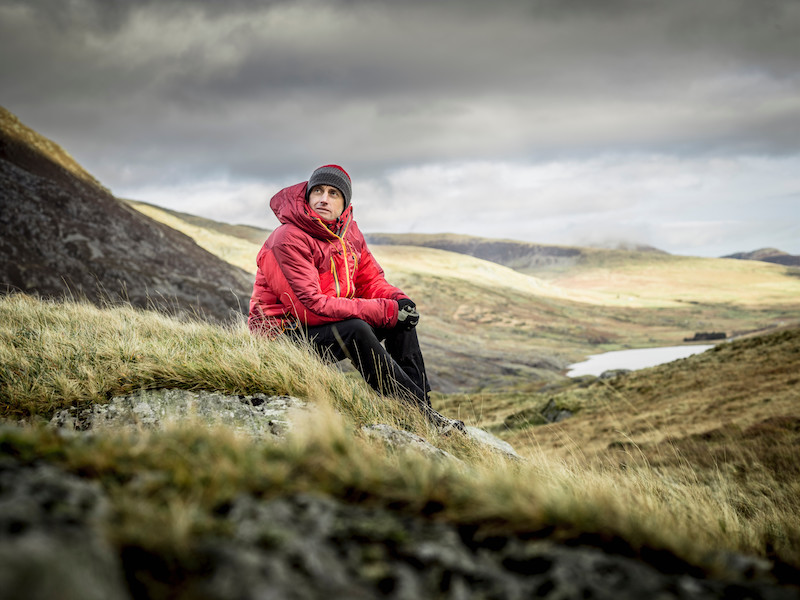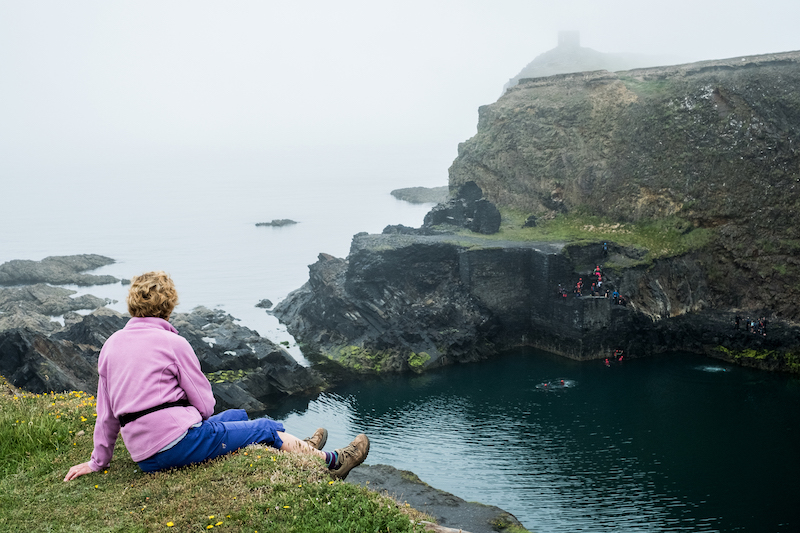Travelling to Wales for the first time and want to know a few handy phrases to get by? Or maybe you’ve travelled to Wales before and want to refresh your memory? Learning just a few simple sentences will make your trip worthwhile, as it shows that you respect the Welsh language as well as the culture. The locals will certainly appreciate this, even if it’s a few sentences here and there!
Let’s start with the three most basic Welsh greetings that will certainly come in handy during your stay:
Bore da – Good morning
Prynhawn da – Good afternoon
Noswaith dda – Good evening
The above greetings can be used with workers within the hospitality industry such as waiters and hotel workers, or with people you may encounter along the way to your place of stay, for example taxi drivers or bus drivers. They can also be used with shopkeepers if you decide to visit some shops on your travels, or anyone who provides a service while you’re there.
When you want to say ‘goodbye,’ use the formal greeting:
Hwyl fawr – Goodbye
Or, if you want to use a more casual greeting to say ‘goodbye,’ use:
Hwyl – Bye
If you’re a complete beginner, there will be a point in time where you will want to switch to English. Broken Welsh will only get you so far and the best way to politely ask if somebody speaks English in Welsh is:
Ydych chi’n siarad Saesneg? – Do you speak English?
Or, if you find yourself in a situation where the other person initiated the conversation, you can respond with:
Mae’n ddrwg gen i, dydw i ddim yn siarad Cymraeg yn dda iawn. – I’m sorry, I don’t speak Welsh very well.
Or, if you want to get straight to the point, you can tell the other person that you don’t understand them:
Dydw i ddim yn deall, sori. – Sorry, I don’t understand.
If you’re keen on building and improving your Welsh vocabulary (the best way to do this is with the locals!), you should have the following phrase to hand:
Sut ydych chi’n dweud [station] yn y Gymraeg? – How do you say [station] in Welsh?
The other person should hopefully respond with:
Y gair Cymraeg am ‘station’ yw gorsaf. – The Welsh word for station is ‘gorsaf’.
Learning how to pronounce things in Welsh will take time. If you’re having trouble understanding, it’s important to know how to ask someone to write things down, especially if it’s important information such as an address or a telephone number.
Use the following question for this kind of scenario:
Allwch chi ei ysgrifennu i lawr i mi, os gwelwch yn dda? – Can you write it down for me please?
Or you can simply ask that person to note down the address or telephone number:
Allwch chi ysgrifennu’r cyfeiriad/rhif ffôn i lawr i mi, os gwelwch yn dda? – Can you write down the address/phone number for me, please?
Being in a new country can be quite daunting at times, and this is even worse if you can’t get your bearings! For this kind of scenario, you should know how to say “Where is / are…?”
The singular version of this question is as follows:
Ble mae’r (gorsaf)? – Where is (the station)?
Once you know how to say this question, all you have to do is fill in the blank with the correct noun. For example:
- Toiledau cyhoeddus = public toilets
- Amgueddfa = museum
- Safle bws = bus stop
- Archfarchnad = supermarket

Asking for the time is essential if you’ve forgotten your watch or phone. You definitely don’t want to forget about that booking you made for that exciting excursion or restaurant you had in mind! The best way to ask this in Welsh is:
Faint o’r gloch yw hi? – What time is it?
The Welsh locals will certainly appreciate it if you’ve learnt your “pleases” and “thank yous”, and some people may even think that they make too much use out of them! In Welsh, there are two ways to say “please”. You can use:
Plîs (informal) – Please
Os gwelwch yn dda (formal) – Please
In terms of “thank you,” you can say:
Diolch – Thanks
Diolch yn fawr – Thank you very much
If someone thanks you, be ready to respond with the word ‘croeso’ which means ‘you’re welcome’.
Croeso – You’re welcome

If you decide to buy a typical Welsh souvenir, whether that being a nice slate plaque for the wall or a Welsh tapestry/blanket for the living room, it’s important to know how much money you need to put aside for it. The easiest way to inquire about the price of something is:
Faint mae’n ei gostio? – How much does it cost?
Or, if you want to take things to another level, you could ask:
Beth yw pris yr eitem hon? – What is the price of this item?
In terms of the plural, for example, if you’re inquiring about multiple items, you will need to change the phrase to:
Faint maen nhw’n ei gostio? – How much do they cost?
Beth yw pris yr eitemau hyn? – What is the price of these items?
If you’re planning to use public transport to go from A to B, it would be useful to know their schedules:
Faint o’r gloch mae’r [trên] yn cyrraedd/gadael? – What time does [the train] arrive/leave?
Here’s a list of common public transport in Wales:
- Bws = Bus
- Trên = Train
- Tacsi = Taxi
- Bws moethus = Coach
You might want to know how long it will take to get to your destination, or at least an approx. time. For this, use one of the following but remember to mutate the place name that follows (if needed):
Faint o amser mae’n ei gymryd i fynd i [Gaerdydd]? – How much time does it take to go to [Cardiff]?
Pa mor hir yw’r daith i [Gaerdydd]? – How long is the journey to [Cardiff]?
- i Fangor = to Bangor
- i Aberystwyth = to Aberystwyth
- i’r orsaf = to the station
- i’r amgueddfa = to the museum
- i ganol y ddinas = to the city centre
- i ganol y dref = to the town centre
It’s always useful to know how to say where you would like to go when you’re travelling. Having an opinion matters after all! You have plenty of choices in Wales whether that being on high ground, low ground, or near the coastline.
In Welsh, you can use the following sentence:
Hoffwn i fynd… – I would like to go…
Then just add where you would like to go, for example:
- …i’r traeth / the beach
- …fyny gopa’r Wyddfa / the summit of the Wyddfa
- …weld Llyn Tegid / see Llyn Tegid
- …ymweld â Chastell Caerdydd / visit Cardiff Castle.

Another verb that would be useful to know is ‘gallu’ – to be able to. Here are a few examples:
Allwch chi fy helpu? – Are you able to help me?
Allwch chi dynnu llun ohonon ni? – Can you take a photo of us?
Allwch chi ddangos ble mae’r Ganolfan Wybodaeth, os gwelwch yn dda? – Can you show me where the Information Centre is, please?
Although no one wants to end up lost in a new town or city, it’s still a possibility. Being the worst-case scenario, it’s important to know how to communicate with someone to say that you’re lost in the first place. The simplest way of doing this is to state the facts:
Dw i ar goll. – I am lost.
Whoever you encounter will hopefully assist at this stage! If you have someone else in your company, you will need to use the plural:
Rydyn ni ar goll. – We are lost.
If you’ve lost one of your belongings, you can say:
Dw i wedi colli [fy waled]. – I have lost [my wallet].
Or, if you’ve been unlucky enough to lose any other item, replace with one of the following:
- Cês dillad / Fy nghês dillad = luggage / suitcase
- Cerdyn credyd / Fy ngherdyn credyd = credit card
- Sbectols / Fy sbectols = glasses
- Pasbort / Fy mhasbort = passport
- Ticed / Fy niced = ticket
As you can see above, you will need to mutate some of the nouns that follow ‘fy’ (my).
If you want somebody’s attention, and that person is busy occupied with something else, you can always use the following:
Esgusodwch fi – Excuse me
Mae’n ddrwg gen i am dorri ar draws. – I’m sorry for interrupting.
By all means, if you’ve found yourself in a pickle, or in real trouble, you can always call out for help as you would in English:
Help!
With all of these phrases under your belt, you’re sure to be well equipped and ready to go. Pob lwc and safe travels!

